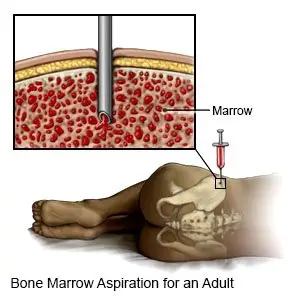What is hypereosinophilic syndrome?
Hypereosinophilic syndrome (HES) is a group of conditions that causes you to have too many eosinophils. An eosinophil is a type of white blood cell. Allergies, asthma, parasitic infections, and certain medicines may increase the number of eosinophils. Organs such as your skin, lungs, heart, or brain may be damaged if you have too many eosinophils. They may also harm your kidneys, intestines, liver, or spleen.
What are the signs and symptoms of HES?
- Fever, fatigue, or weight loss
- Redness, swelling, itching, or flaking skin
- Weakness or numbness in parts of your body
- Abdominal pain, vomiting, or diarrhea
- Chest pain
- Cough or trouble breathing
- Confusion or memory loss
How is HES diagnosed?
Your healthcare provider will ask if you have any health conditions, take medicines, or ever took illegal drugs. You may need tests to find the cause of your HES and to check your heart and lungs. You may also need the following tests:
- Blood tests will be done to measure the number eosinophils and other white blood cells.
- A bone marrow biopsy is a procedure to remove a sample of bone marrow to be tested.

How is HES treated?
- Medicines are used to decrease inflammation and swelling. You may also get medicine to decrease the number of eosinophils in your blood.
- A bone marrow transplant is a procedure to replace your diseased bone marrow with healthy marrow. Bone marrow usually comes from a donor. The bone marrow is given to you in an IV while you are in the hospital.
Treatment options
The following list of medications are in some way related to or used in the treatment of this condition.
- Nucala
- Gleevec
- imatinib
- mepolizumab
When should I contact my healthcare provider?
- You have a fever.
- You have nausea that does not go away.
- You are dizzy and feel faint.
- You have chills, a cough, or feel weak and achy.
- You have questions or concerns about your condition or care.
When should I seek immediate care or call 911?
- You have severe chest or abdominal pain.
- You have sudden trouble breathing.
Care Agreement
You have the right to help plan your care. Learn about your health condition and how it may be treated. Discuss treatment options with your healthcare providers to decide what care you want to receive. You always have the right to refuse treatment. The above information is an educational aid only. It is not intended as medical advice for individual conditions or treatments. Talk to your doctor, nurse or pharmacist before following any medical regimen to see if it is safe and effective for you.© Copyright Merative 2023 Information is for End User's use only and may not be sold, redistributed or otherwise used for commercial purposes.




